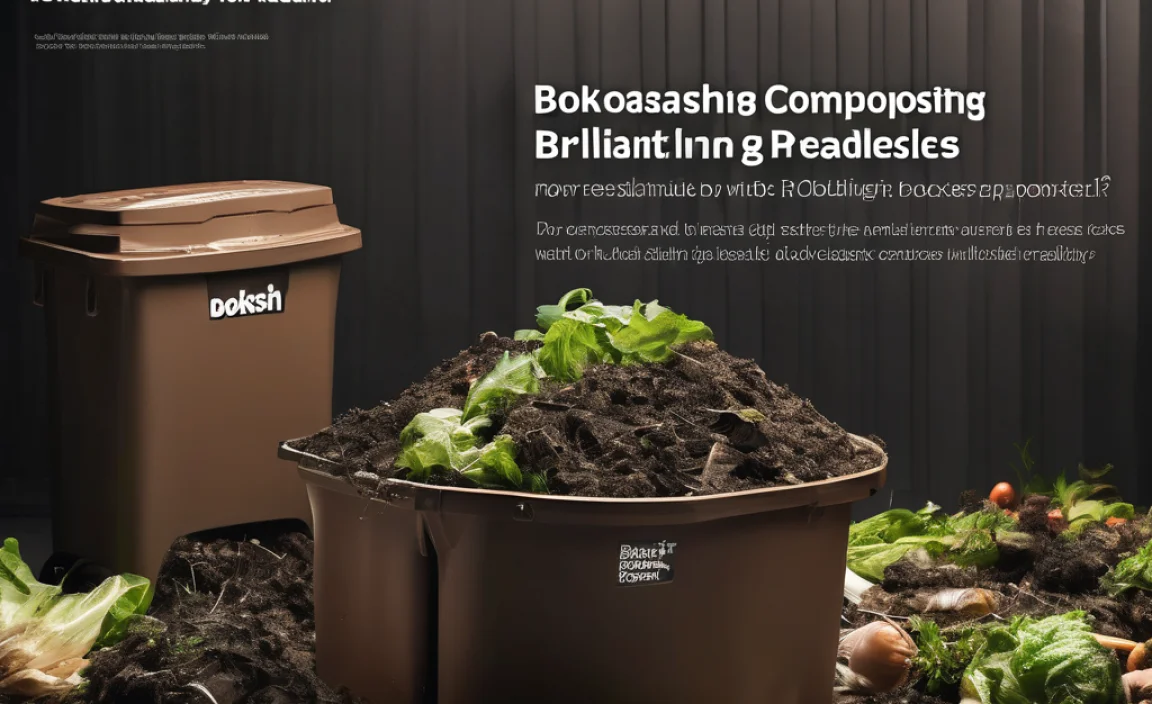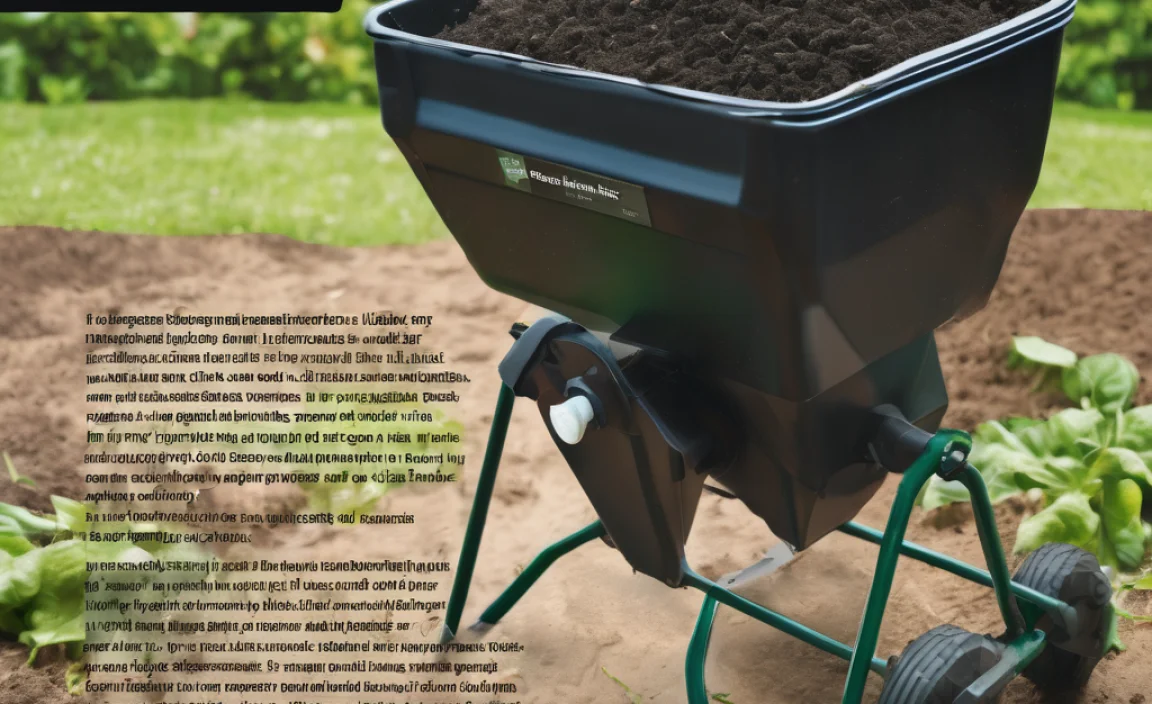Hotels create a lot of waste, and it can feel overwhelming trying to handle it all responsibly. Especially food scraps and compostable materials. But what if there was a simple, effective way to turn that waste into a resource? Composting is your answer! It’s not as complicated as you might think. This guide will walk you through everything you need to know to start composting at your hotel, making a real difference for the planet and your budget. Let’s get started on this waste-busting journey!
Why Composting is a Game-Changer for Hotels
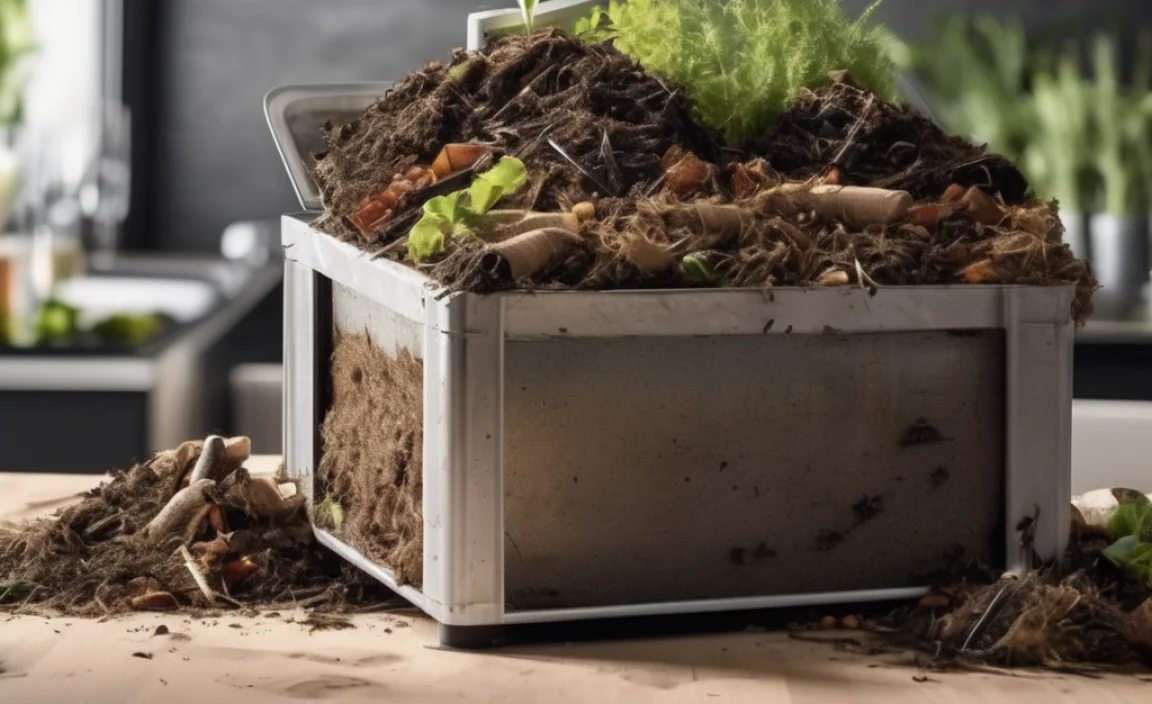
As a hotel operator, you’re always looking for ways to improve guest experiences, cut costs, and operate more sustainably. Composting hits all these points! It’s a powerful tool for reducing your environmental footprint, enhancing your brand image, and potentially even creating valuable byproducts for your own grounds or for sale.
The Environmental Impact
So, why bother with composting? Well, a huge portion of hotel waste is organic material – think food scraps from kitchens and dining areas, used napkins, and plant trimmings from your landscaping. When this organic waste ends up in a landfill, it decomposes without oxygen (anaerobically) and releases methane, a potent greenhouse gas. Methane is many times more harmful to the environment than carbon dioxide. Composting, on the other hand, is an aerobic process (with oxygen) that breaks down organic matter naturally. This significantly reduces methane emissions and diverts a massive amount of waste from already overflowing landfills.
According to the United States Environmental Protection Agency (EPA) “Compost It” page, yard trimmings and food scraps together constitute more than 30 percent of what we throw away. For a hotel, this percentage can be even higher. By composting, you directly tackle this issue, contributing to cleaner air and a healthier planet.
Boosting Your Brand and Guest Satisfaction
In today’s world, travelers are increasingly conscious of their environmental impact. They actively seek out and prefer businesses that demonstrate a commitment to sustainability. Implementing a visible composting program signals to your guests that you care about the planet, which can be a significant differentiator for your hotel. This can lead to positive reviews, increased bookings, and a stronger, more positive brand reputation. Many guests are happy to support eco-friendly initiatives and will share their positive experiences with others.
Cost Savings and Resource Generation
While there might be an initial investment in setting up a composting system, the long-term cost savings can be substantial. Reducing the volume of waste sent to landfills directly lowers your waste hauling fees. Furthermore, the compost you produce is literally “black gold” for your landscaping. You can use it to enrich the soil in your hotel gardens, flower beds, or even for on-site farming initiatives, reducing the need to purchase soil amendments and fertilizers. Some hotels even sell their surplus compost to local gardeners or landscapers, creating an additional revenue stream.
Understanding the Basics of Composting
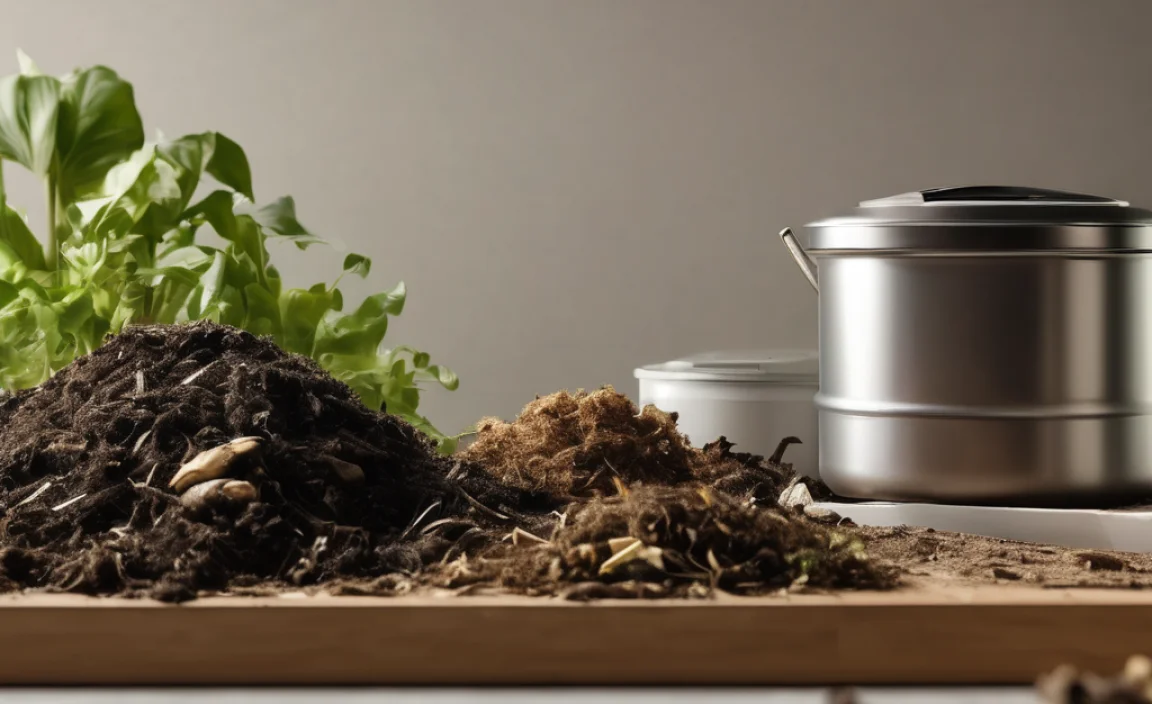
At its heart, composting is nature’s way of recycling. It’s a process where organic materials are broken down by tiny organisms like bacteria, fungi, and other critters, turning them into nutrient-rich compost. To make this process work efficiently, you need to provide the right environment and a balanced mix of ingredients.
The Four Key Ingredients: Greens and Browns
Successful composting relies on a balance between two types of materials: “Greens” and “Browns.” Think of them as the fuel and the structure for your compost pile.
- Greens (Nitrogen-rich): These are the moist, nitrogen-rich materials that provide energy for the microorganisms. They tend to break down quickly. Examples include:
- Food scraps (fruit and vegetable peels, coffee grounds, tea bags, eggshells)
- Grass clippings
- Fresh plant trimmings
- Browns (Carbon-rich): These are drier, carbon-rich materials that provide bulk and allow air to circulate. They break down more slowly. Examples include:
- Cardboard (torn into small pieces, free of glossy print and tape)
- Paper (shredded newspaper, paper towels – plain white is best)
- Dry leaves
- Twigs and small branches
- Sawdust (from untreated wood)
- Cardboard tubes
The Ideal Ratio
A good rule of thumb is to aim for a ratio of about 2 to 3 parts Browns to 1 part Greens by volume. Too many Greens can make your compost wet and smelly, while too many Browns will slow down the decomposition process. It might take a little trial and error to get it just right, but don’t stress too much – nature is forgiving!
Essential Elements for a Healthy Compost Pile
Beyond Greens and Browns, three other factors are crucial for turning your waste into compost:
- Moisture: Your compost pile should be as damp as a wrung-out sponge. Too dry, and decomposition slows to a crawl. Too wet, and it can become anaerobic and smelly. You’ll need to add water if it’s too dry, or more Browns if it’s too wet.
- Oxygen: The microorganisms that break down organic matter need air to live. Turning or aerating your compost pile regularly is essential. This can be done with a pitchfork, a compost aerator tool, or by simply turning the contents of an enclosed composter.
- Temperature: A healthy, actively decomposing compost pile will heat up. This heat is crucial for killing weed seeds and pathogens. The ideal temperature range for active composting is between 130-160°F (55-70°C). Turning the pile helps maintain this temperature and speeds up the process.
Choosing the Right Composting System for Your Hotel
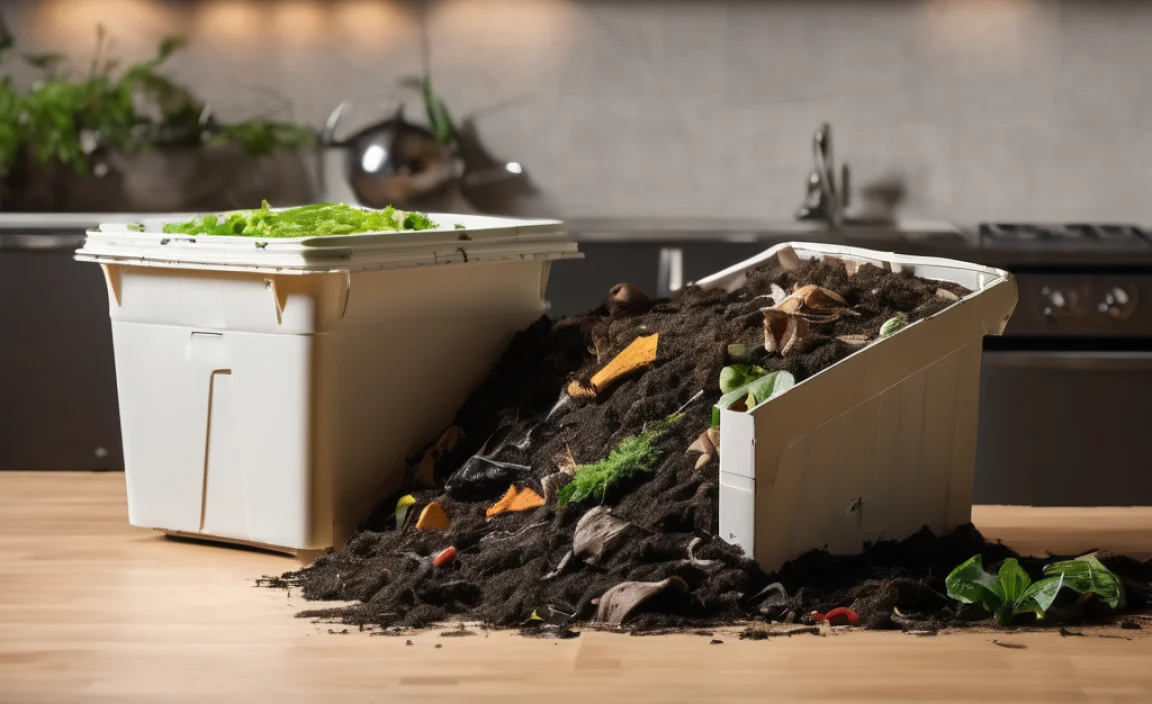
The best composting system for your hotel depends on your size, the volume of organic waste you generate, available space, and budget. Here are a few popular options, from simple to more advanced.
Option 1: The Simple Pile (Outdoor)
This is the most basic method and requires minimal investment. It involves simply piling organic materials in a designated outdoor area. It works best for larger volumes of waste and requires more space. Regular turning is essential for efficient decomposition.
Option 2: Contained Bins (Outdoor)
These are typically enclosed bins made of wood, wire mesh, or recycled plastic. They help keep the compost neat, retain moisture and heat better than an open pile, and can deter pests. Many commercial options are available, or you can build your own.
Option 3: Tumbler Composter (Outdoor)
Tumbler composters are enclosed drums mounted on a base, allowing you to easily rotate or “tumble” the contents. They are generally faster than stationary bins because tumbling mixes and aerates the material effectively. They are also good at deterring pests and can compost larger batches in a relatively compact space. This is a great mid-range option for many hotels.
Option 4: Electric Composter / Food Recycler (Indoor/Outdoor)
These are high-tech appliances that use heat and aeration to break down food scraps into a nutrient-rich soil additive in a matter of hours, not weeks or months. They are compact, odorless, and ideal for hotels with limited outdoor space or those looking for a rapid solution primarily for food waste. While they have an initial cost, they can significantly reduce waste volume quickly and are very user-friendly. Many models are designed for indoor use in kitchens or utility areas.
Option 5: Commercial Composting Services
If setting up and managing your own composting system feels too daunting, or if regulations in your area require it, partnering with a commercial composting service is an excellent solution. These companies provide bins, regular pick-ups of your organic waste, and handle the composting process off-site. This is often the easiest option to implement and manage, though it involves ongoing service fees.
What Hotels Can and Cannot Compost
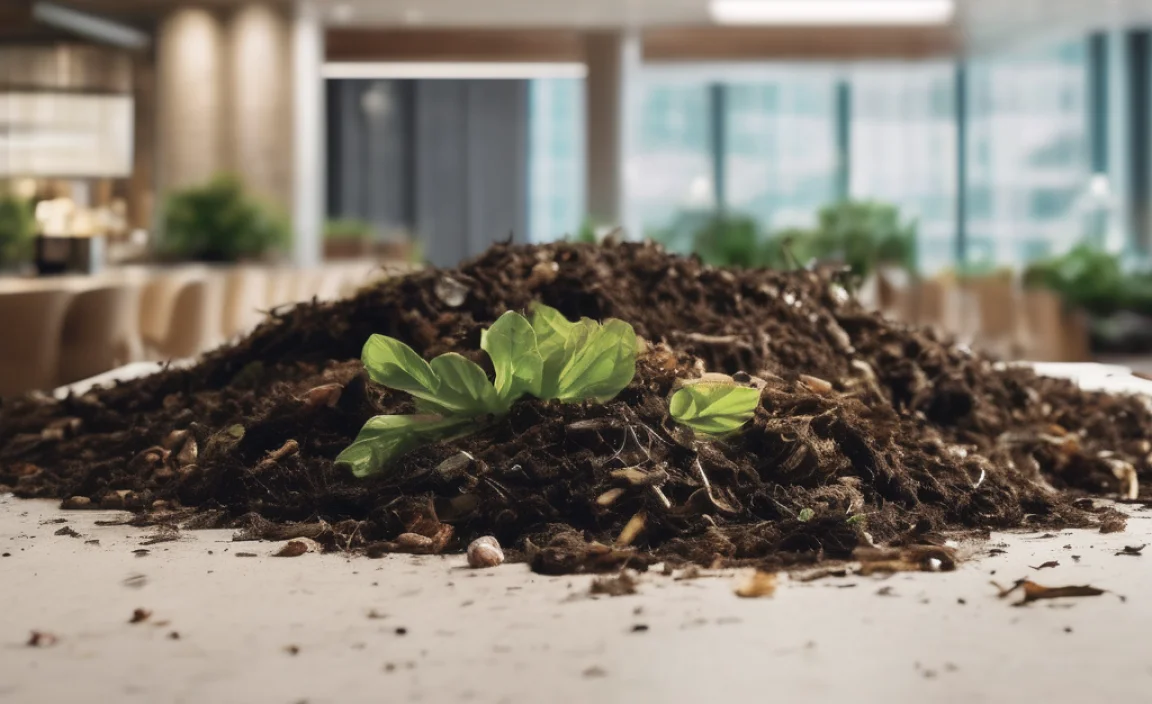
Knowing what materials to compost is key to a successful and odor-free system. Here’s a breakdown:
| Acceptable “Greens” (Nitrogen-rich) | Acceptable “Browns” (Carbon-rich) | What to AVOID (or Compost Separately) |
|---|---|---|
| Fruit and vegetable scraps | Paper towels and napkins (plain, no chemicals) | Meat, fish, and bones (can attract pests and odors, better for commercial) |
| Coffee grounds and filters | Shredded newspaper and plain cardboard (no glossy print/tape) | Dairy products (milk, cheese, yogurt – can attract pests and odors) |
| Tea bags | Dry leaves | Oily or greasy foods (can slow decomposition and create odors) |
| Eggshells | Sawdust (from untreated wood) | Diseased plants or weeds that have gone to seed (unless your compost gets very hot) |
| Grass clippings (in moderation to avoid matting) | Wood chips (small amounts, fine texture) | Pet waste (dog feces, cat litter – can contain pathogens) |
| Inedible plant trimmings (stems, leaves) | Cardboard tubes (toilet paper, paper towel rolls) | Coal or charcoal ash (can contain harmful compounds) |
| Flowers and plant cuttings | Synthetics, plastics, glass, metal (obviously non-compostable) |
Special Considerations for Hotels
For hotels, food scraps from kitchens and restaurants are the largest compostable waste stream. While home composters often avoid meat and dairy, many commercial composting systems and services can handle these items, as they reach much higher temperatures capable of breaking them down safely. It’s crucial to check with your chosen composting system provider or service about their specific guidelines regarding meat, dairy, and other potentially problematic items.
Compostable serviceware: If your hotel uses compostable cups, plates, or cutlery, ensure they are certified compostable according to standards like ASTM D6400 or EN 13432. Many of these items will not break down in a backyard or even a standard tumbler, but are designed for industrial composting facilities. If you’re doing your own composting, stick to certified compostable items that are known to break down in your specific system, or opt for reusable serviceware. Always check the packaging for clear composting instructions.
Step-by-Step: Implementing Your Hotel Composting Program
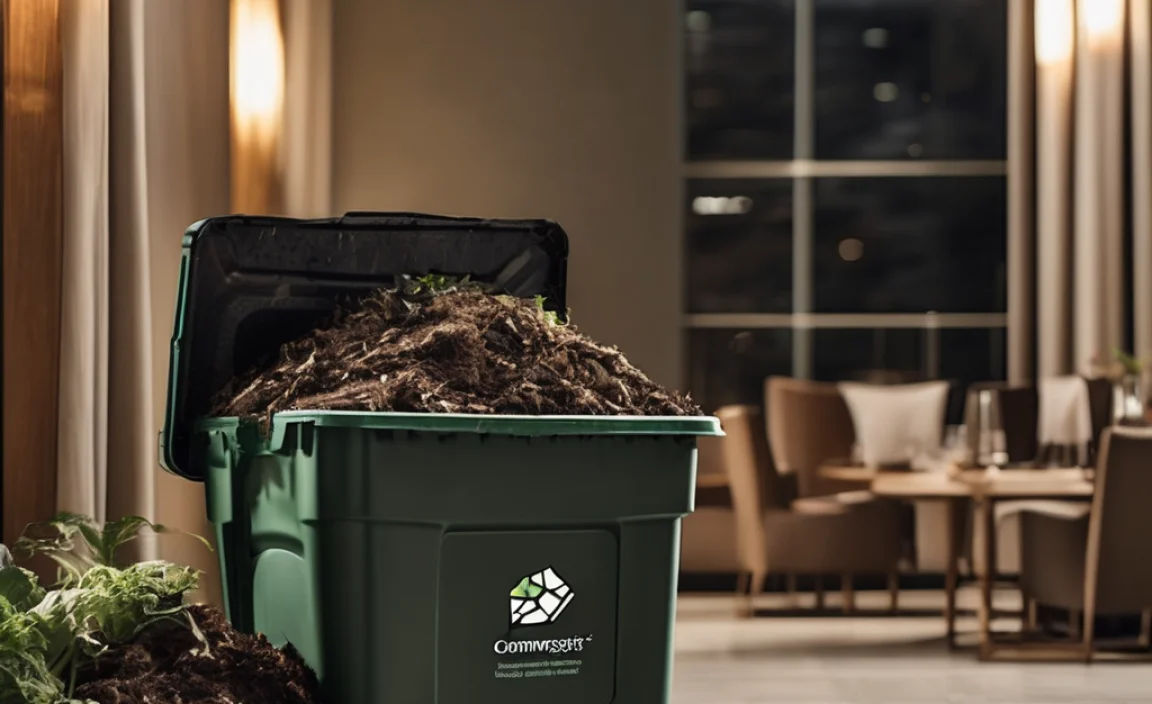
Getting your hotel’s composting program off the ground involves a few key steps. Think of it as a project with distinct phases, each building on the last for success.
Phase 1: Planning and Assessment
-
- Waste Audit: Begin by understanding your waste stream. Track how much organic waste (food scraps, paper products, yard waste) your hotel generates daily, weekly, and monthly. Note which departments (kitchen, restaurants, housekeeping, groundskeeping) produce the most compostable material.
- Set Goals: What do you want to achieve? Reduce landfill waste by X%, cut waste hauling costs by Y%, produce compost for landscaping? Clear goals will guide your decisions.
- Space and Resources: Identify potential locations for composting systems (outdoor area, service yard, kitchen back-of-house) and assess available resources like water and personnel for managing the system.
- Research Options: Based on your waste audit, space, and budget, research the composting systems and commercial services discussed earlier. Consider factors like initial cost, ongoing maintenance, processing speed, and odor control.
- Budget Allocation: Determine your budget for equipment, training, and potentially ongoing service fees.

I am passionate about home engineering. I specialize in designing, installing, and maintaining heating, ventilation, and air conditioning systems. My goal is to help people stay comfortable in their homes all year long.


